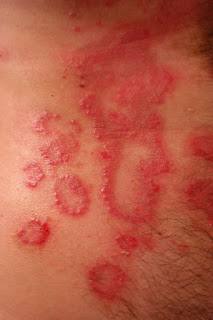As summer comes to a close in just
over two weeks, cooler temperatures and a change in the weather will soon follow
suit – and the colder the season, the drier, itchier and inflamed the skin can
become.
Psoriasis, a common autoimmune
disorder that affects as many as 1 million Canadians and 125 million
individuals, manifests itself as a skin problem. With Psoriasis, skin may feel
itchy and/or sore and appear scaly and/or red. While the exact cause of
Psoriasis is unknown, a combination of genetics and certain triggers (such as
stress) are likely to play a part in the disorder; and while family physicians
like Dr. Ali Ghahary may need to prescribe medication to individuals with
Psoriasis, there are also some steps you can first try in order to help sooth
the skin as well as prevent flare-ups of the disorder. The following steps are
also beneficial to anyone who might be suffering from dry skin.
First and foremost, individuals
suffering from dry skin should moisturize daily. Moisturizer will not only
leave your skin feeling smoother and softer, but also help to prevent
irritation. The thicker the moisturizer, the better, as it well help to lock
water into the skin, leaving it moist. If you have sensitive skin then you should
make sure you use products that are perfume and lanolin-free. Cleansing skin is
also important, but make sure you do not overdo it as you may actually wind up
stripping the skin of its natural moisturizing factors. 15-minute oatmeal or
Epsom salt baths will also help to sooth dry, irritated skin.
Protecting exposed areas of the skin
while out in cold, windy weather is another important factor as Psoriasis can
oftentimes be exacerbated by the cooler elements. When outdoors you should
always wear soft, warm layers of clothing, as well as hats, gloves and scarves.
If you find that following these steps do not improve the skin’s appearance, you should talk with your doctor so that an effective treatment plan can be put into place.
If you find that following these steps do not improve the skin’s appearance, you should talk with your doctor so that an effective treatment plan can be put into place.

No comments:
Post a Comment